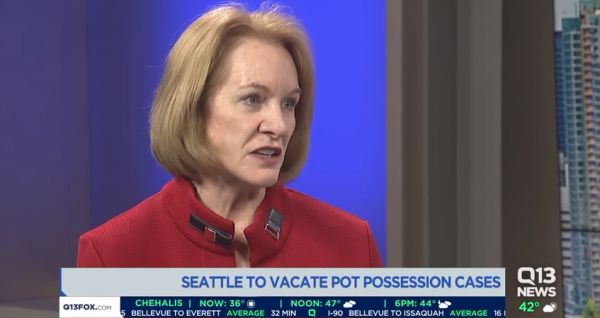
Seattle Mayor Jenny Durkan announced Wednesday her desire for legislation requiring so-called “safe storage” of firearms and “increased civil penalties…for not reporting lost or stolen firearms,” but will that effort collide with Washington State’s 35-year-old preemption law?
State preemption, adopted in 1983, puts sole authority for gun regulation in the hands of the State legislature. Seattle lost in court when it tried to ban firearms in city park facilities about eight years ago. Here is the language of Washington’s model law:
“The state of Washington hereby fully occupies and preempts the entire field of firearms regulation within the boundaries of the state, including the registration, licensing, possession, purchase, sale, acquisition, transfer, discharge, and transportation of firearms, or any other element relating to firearms or parts thereof, including ammunition and reloader components. Cities, towns, and counties or other municipalities may enact only those laws and ordinances relating to firearms that are specifically authorized by state law, as in RCW 9.41.300, and are consistent with this chapter. Such local ordinances shall have the same penalty as provided for by state law. Local laws and ordinances that are inconsistent with, more restrictive than, or exceed the requirements of state law shall not be enacted and are preempted and repealed, regardless of the nature of the code, charter, or home rule status of such city, town, county, or municipality.”
The big question: Is there any wiggle room in there for the city? Evergreen State gun owners, and possibly some state lawmakers, may have something to say about that.
According to a statement, Durkan and City Councilwoman M. Lorena Gonzalez, along with City Attorney Pete Holmes, will be “developing legislation within the next month.” Mayor Durkan says this will follow “outreach and engagement with stakeholders including gun owners, safety advocates, community members, public health experts and others.”
Who are the “safety advocates” to whom she refers? Are those the gun prohibition lobbyists headquartered in Seattle? There are two gun control groups in the Jet City, the billionaire-financed Alliance for Gun Responsibility and the less active Washington CeaseFire.
The Seattle P-I.com recalled Wednesday that, “A statewide initiative, requiring lock boxes in homes and gun safety courses for firearms owners, was beaten 21 years ago by a multi-million-dollar National Rifle Association campaign. But that was then. The tables have turned.
“In 2014 and 2016, Washington voters approved initiatives to close the ‘gun show loophole’ on background checks, and to allow extreme risk protection orders in which family and/or law enforcement can petition to disarm a person who is a danger to themselves or those around them.”
Indeed times have changed, and omitted from this recollection is the fact that both initiatives had “multi-million dollar” backing. The campaign to pass Initiative 594 – the so-called “universal background check” measure – spent more than $10 million against about $2 million spent by the NRA and Protect Our Gun Rights, a coalition of groups that included hunters, competitors, gun rights activists and others. The Alliance got money from local billionaires including Bill and Melinda Gates, Paul Allen and Nick Hanauer, along with Michael Bloomberg.
The P-I.com story also noted that, “Washington has experienced its share of killing sprees: The murders at Cafe Racer in Seattle; the murder of five at the Burlington Mall; the gunning down of students at Marysville-Pilchuck High School; the killings of young people at a Mukilteo party; and last September’s murder of one student and wounding of three others at Freeman High School near Spokane.”
What the story omitted was that all of these crimes violated existing gun laws, and that the shootings at Mukilteo, Burlington Mall and Freeman High School all happened after passage of I-594. Second Amendment activists have repeatedly pointed out that the initiative, however well meaning, didn’t prevent any of those incidents.
Durkan did not say how a safe storage requirement would be enforced, provided it survives any legal challenge